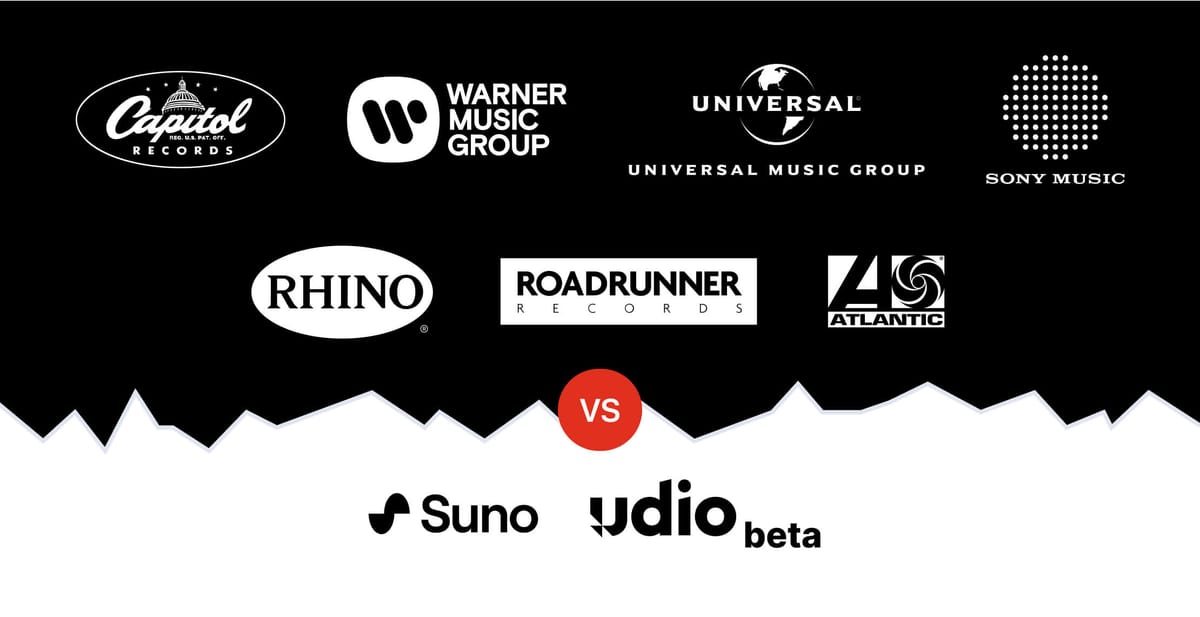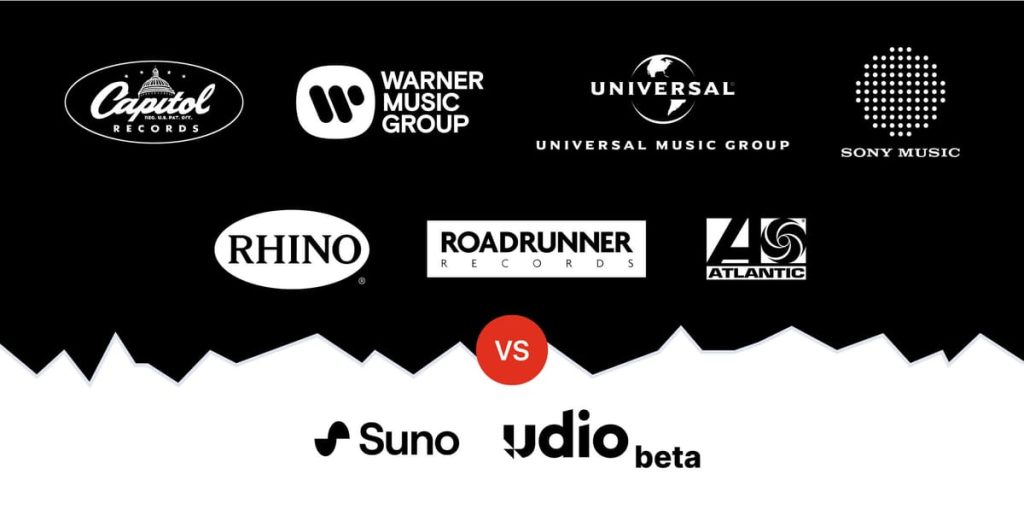
The music industry has thrown down the gauntlet against AI-generated music, as the world’s largest record labels unite in a legal offensive against two prominent AI music startups. Universal Music Group (UMG), Sony Music Entertainment, and Warner Music Group have filed lawsuits against Suno and Udio, accusing the companies of “willful copyright infringement on an almost unimaginable scale.”
Filed in federal courts in Boston and New York, the lawsuits allege that Suno and Udio have unlawfully used copyrighted sound recordings to train their AI models, which can generate original songs from text prompts. The labels claim this practice threatens to “saturate the market with machine-generated content that will directly compete with, cheapen, and ultimately drown out the genuine sound recordings” on which the AI services were built.
At the heart of the dispute is the question of how AI companies acquire and use training data. The lawsuits argue that Suno and Udio have copied and ingested “decades worth of the world’s most popular sound recordings” without permission from copyright holders. This process, the labels contend, allows the AI services to generate outputs that mimic the qualities of human-created recordings.
The plaintiffs (i.e., the recording labels) show examples where they were able to reproduce music files that “strongly resemble the Copyrighted Recordings” by using “targeted prompts that include the characteristics of popular sound recordings—such as the decade the sound recording was released, as well as the topic, genre, and descriptions of the artist.”
📑
The legal action seeks both injunctive relief to halt further alleged infringement and damages that could reach up to $150,000 per infringed work. Given the vast catalogs of the major labels, potential damages could easily soar into nine-figure territory.
Suno CEO Mikey Shulman defended his company’s practices, stating, “Our technology is transformative; it is designed to generate completely new outputs, not to memorize and regurgitate pre-existing content.” Shulman emphasized that Suno does not allow user prompts referencing specific artists and expressed disappointment that the labels chose litigation over “good faith discussion.”
Udio, which recently made headlines with the viral AI-generated Drake-style track “BBL Drizzy,” has not yet responded to the allegations.

The lawsuits come at a critical juncture for AI in the music industry. While many labels are exploring partnerships with AI companies to develop innovative tools, they draw the line at unauthorized use of copyrighted material. Mitch Glazier, CEO of the Recording Industry Association of America (RIAA), which is spearheading the legal action, stated, “We can only succeed if developers are willing to work together with us.”
This legal battle raises complex questions about fair use in the age of AI. The labels argue that training AI on copyrighted works falls outside the bounds of fair use, as it produces “imitative machine-generated music” rather than fostering human creativity or expression.
The outcome of these lawsuits could have far-reaching implications for the future of AI in music creation and the broader creative industries. As the cases progress, they will likely shape the legal landscape surrounding AI training data and potentially influence how future AI music tools are developed and licensed.
For now, the music industry’s message is clear: innovation in AI is welcome, but not at the expense of artists’ rights and the established mechanisms of music licensing. As this legal drama unfolds, it will undoubtedly be watched closely by technologists, artists, and legal experts alike, potentially setting precedents that could resonate far beyond the world of music.
